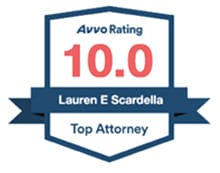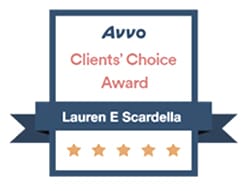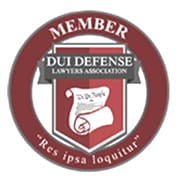Drug Court Lawyer Trenton, NJ
Experienced New Jersey Drug Court Lawyers Protect Clients’ Rights in Mercer County, Middlesex County, and Monmouth County, NJ
Drug court is a program in New Jersey that is designed as an alternative to jail time for certain individuals who have been accused of drug crimes, but who have no violent histories. The program focuses on substance abuse counseling and rehabilitation in order to provide eligible individuals with an opportunity to reform their lives outside of the prison system. The NJ drug court program has been expanded in recent years to allow individuals accused of more serious second degree crimes to enter into the program.
At The Scardella Law Firm LLC in Hamilton, NJ, we are Trenton drug court lawyers who understand that many drug-related offenses stem from underlying dependency issues on a controlled dangerous substance that may not be resolved through jail time. We always search for alternatives to trial, and will evaluate the circumstances surrounding any client’s drug-related arrest with a view toward providing potential rehabilitation options as an alternative to jail. We use our experience navigating the New Jersey courts to help you determine whether the drug court program could help you turn your life around. The issues surrounding drug dependency can be extremely sensitive, and we have two decades of experience in offering our personal support to clients struggling with addiction that has led to drug-related crime.
New Jersey’s Drug Court System
The New Jersey drug court system began operating in 1996 in Camden and Essex courts, and a statewide pilot program began in the early 2000s. The program expanded in 2012, when the governor signed N.J.S.A. 2C:35-14-1 and 2C:35-14-2 into law, which made drug court mandatory for some accused individuals, regardless of whether they submitted a voluntary application to the program. To gain admission to the program now, the accused individual is required to undergo a clinical assessment to determine whether they are dependent upon alcohol or drugs. Admission also requires a legal review.
The drug court program, which functions within the New Jersey Superior Court system, relies upon intense supervision and drug testing in order to provide an alternative to jail for nonviolent offenders in NJ. The overall goal of drug court is to break the cycle of dependency that often motivates drug users to resort to criminal activity in order to obtain illegal drugs. To successfully complete drug court, the accused individual will typically be required to:
- Complete random drug tests.
- Participate in treatment sessions.
- Appear frequently before the drug court judge.
- Meet with a probation officer at regular intervals.
Drug court also provides job and healthcare related services to help participants get back on their feet after recovering from a substance abuse problem.
Hamilton Criminal Defense Attorneys The Scardella Law Firm LLC Can Help Determine Whether Drug Court Is Right for You
Drug court can provide a valuable incentive toward rehabilitation in many cases, but not all clients will be eligible for the program. Drug court is not an option if:
- The accused individual has a history of violence, including situations where accusations of a violent crime are built into the currently pending drug-related offense.
- The alleged crime was committed solely to make a profit, rather than because of the underlying drug dependency.
- The accused individual hired a minor to distribute drugs.
- The alleged crime was a first degree offense.
Individuals who have been accused of a crime that is not actually a drug crime, but that was motivated by the individual’s underlying addiction to drugs, may also be eligible for the drug court program so long as the crime was a non-violent offense.
Call New Jersey Criminal Defense Lawyers The Scardella Law Firm LLC to Schedule a Free Consultation in Your Lawrence Drug Court Case Today
At The Scardella Law Firm LLC in Hamilton, New Jersey, we take the time to get to know each of our clients so that we can gain a better understanding of whether drug court is a viable option under the circumstances. If you have been accused of a crime in Hopewell, Trenton, Ewing, Robbinsville, or anywhere else in NJ and think that drug court may be right for you, call our office today at 609-587-1144 to schedule an appointment, or fill out this online form. We can help you understand the drug court requirements, as well as provide assistance throughout the application and screening process that must take place before the courts will approve the drug court alternative. For your convenience, we provide a free initial consultation to evaluate your case, and, if you decide to retain my services, we accept all major credit cards.
Frequently Asked Questions About Drug Court in New Jersey
How long does drug court last?
Drug court typically lasts anywhere from one to two years, although a probationary period of up to five years may be imposed following completion of the program. In some cases, placement in a residential drug treatment facility may be a condition of admission to the program, as well as ongoing treatment upon successful completion.
Will I have a criminal record after graduating from drug court?
New Jersey recently passed a law that, in some cases, may allow for complete expungement of a participant’s criminal record upon successfully completing drug court. The new law went into effect on April 18, 2016, is contained in N.J.S.A. 2C:35-14(m), and is designed to provide participants with a fresh start upon completion of the program. Convictions for more serious offenses, such as murder, kidnapping, arson, robbery, sexual assault, and first or second degree convictions for possession with intent to sell, or sale, of illegal drugs, cannot be expunged. An experienced attorney can complete the request for expungement upon graduation from drug court.
Can I have my record expunged if I graduated from drug court before the new law went into effect?
If you graduated from drug school before April 18, 2016, expungement will be handled in the same manner as any other expungement. This means that your attorney will file a petition for expungement with the Superior Court.






